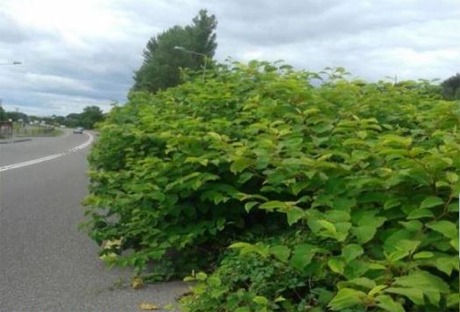|
|
Donegal County Council to zap
alien plants
12.09.16
DONEGAL County Council
has announced a four-year Invasive Alien Plant
Species (IAPS) treatment programme on public roads
during which contractors will be appointed in the
coming weeks.
The circa €200,000 project follows a pilot
initiative in the county last year to trial
different treatment options for the eradication of
invasive plants such as Japanese Knotweed and
Himalayan Knotweed.
The aim was to find the most effective and cost
effective option for future use.
Invasive alien plants species are initially
transported through human activities outside of
their natural range and then survive, reproduce and
spread, the council said.
These species have "negative impacts" on the ecology
of their new location and can impact on drivers'
sight lines on roads; cause damage to the road
infrastructure and other structures. |
 |
|
Japanese Knotweed takes hold along a
Donegal roadway. |
Donegal County Council
senior engineer Brendan O’Donnell said: “Current
treatment practices include spraying with herbicide,
foliage removal and stem injection, stem injection
and excavation and deep burial.
"When treating with pesticide the timing of
treatment is critical, as is the pesticide to be
used. Late in the season just before the plant dies
back for the winter appears to be the most
effective." Donegal's national roads will be among
the first treated by Transport Infrastructure
Ireland (TII) this year.
Meanwhile, Donegal County Council has set aside
€50,000 in the 2016 Budget to treat roadside
infestations with the intention of setting aside a
similar amount annually until the spread of invasive
plants is brought under control. It is expected that
each infestation will need to be treated for a
minimum of four years in succession to ensure
eradication.
Private land owners and members of the public can
contact the council at 074 91 53900 or email
info@donegalcoco.ie for more information. |
|

